Euro-Integration
Latvia, the 18th member of the eurozone.
1 Jan 2014 Andris Vilks said the recent events in Ukraine, which decided at the last minute to turn down an integration agreement with the EU in favour of closer ties with Russia, demonstrated why the Baltic state of 2m people is joining the euro. “Russia isn’t going to change. We know our neighbour. There was before, and there will be, a lot of unpredictable conditions. It is very important for the countries to stick together, and with the EU,”, added the finance minister. 
Latvia still has close ties with Russia, with about 40 per cent of the bank deposits in the country coming from ex-Soviet states. In the country, which is the 18th member of the euro area, opponents of the currency switch outnumber proponents two-to-one as public expectations for accelerating inflation mount, opinion polls show. Residents are also bracing for taking on new responsibilities in the currency union.
Concern that inflation will accelerate is rising even after consumer prices fell 0.4 percent in November from a year earlier, the sixth month this year without an increase. The Finance Ministry estimates prices will rise 2.3 percent next year as the economy expands 4.2 percent.
“Joining the euro marks the completion of Latvia’s journey back to the political and economic heart of our continent, and that is something for all of us to celebrate,” EU Economic and Monetary Affairs Commissioner Olli Rehn said in a statement.
“Immediately after Latvia joins the eurozone, I imagine we’re going to see an actual spike in dubious money flowing in,” said Mark Galeotti, a professor at New York University who researches organized crime in the former Soviet Union.
For years, Latvia’s political and financial leaders had hoped to create a mini-Switzerland in Eastern Europe — a place where capital in unstable countries such as Russia or Kazakhstan could either park for a while or channel its way further west to banking meccas like Zurich or London.
Lithuania adopts the euro.
1 Jan 2014 Lithuania is the 19th European state to adopt the continental currency. 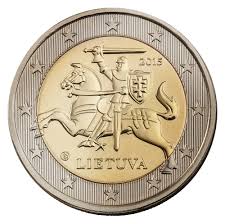 The euro gives the country more freedom in negotiating business with Russia, said Valdas Adamkus, who was president of Lithuania for about a decade until 2009. It provides an extra measure of geopolitical security.
The euro gives the country more freedom in negotiating business with Russia, said Valdas Adamkus, who was president of Lithuania for about a decade until 2009. It provides an extra measure of geopolitical security.
At 0.4 percent, its inflation rate is just a hair above the euro zone average of 0.3 percent, and its 9.5 percent unemployment rate is right in the middle of the pack, and comfortably below the zone average of 11.5 percent. Lithuania’s 1.3 percent real GDP growth rate beats both of its Baltic partners and is again well above the -2.2 percent Euro Zone average.
EU’s budget 2014-2020 adopted at last.
21 Nov 2013Members of the European Parliament (MEPs) voted 537 in favour (Conservatives, Socialists) to 126 against (Greens and radical left) to adopt the EU’s budget for 2014 to 2020.
Known as the Multi-annual Financial Framework (MFF), it provides for 908 billion euros in payments against 960 billion euros in funding commitments, 3.7 percent and 3.5 percent less than in the previous 2007-2013 budget.
A third (37 percent) of the budget will be allocated to the Common Agricultural Policy and 34 percent to Cohesion and Regional policy.
The vote marks the end of a bitter battle in which the budget went back and forth between austerity-minded governments and the EU’s executive European Commission and MEPs, who wanted more funds to boost growth and jobs.
Миграция в ЕС и русский национализм.
19 Nov 2013«Поднимаюсь на третий этаж. Давно не бывал в морском музее «Галата», что в 200 метрах от знаменитого генуэзского аквариума, в древнем порту…
Медленно передвигаюсь по залам, посвященным старой и новой миграциям…
С использованием официальной статистики ЕС показывается, что общепринятые клише о миграции совершенно неправильны. Точнее, просто ошибочны. 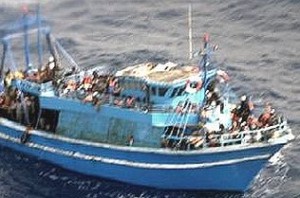
Ах, как я захотел, чтобы некоторые мои знакомые из России были в этот момент со мной! Они бы успокоились со своим излюбленными речами о страшных угрозах и чуть ли не гибели европейской цивилизации…
В России дело осложняется тем, что вопрос миграции из-за рубежа опасно смешивают с отношением к своим собственным регионам. Конечно, речь идет о Северном Кавказе. Италия тоже страдает от своего плохо экономически развитого юга, Германия — от востока, но никому и в голову не придет заявлять то, что все чаще звучит из уст некоторых государственных и политических деятелей России, включая ряд оппозиционеров.
Однако российским политикам все же придется ответственно объяснить гражданам разницу. В многонациональном государстве «русские марши» с популистскими лозунгами типа «хватит кормить Кавказ» и даже откровенными призывами к насилию и убийствам людей других национальностей провоцируют лишь тяжелые раны в обществе. Не стоит забывать страшный урок сербского национализма, в конце 1980-х годов прошлого века взорвавшего Югославию и принесшего огромное разочарование самим сербам».
Статья – Джузеппе Д’Амато Московский Комсомолец Московский Комсомолец № 26387 от 18 ноября 2013 г.Giuseppe D’Amato Moskovskij Komsomolets
Czech Social Democrats (ČSSD) won a slim victory in parliamentary election and face a tough task forming a government. A tiny 2 percentage point outcome over the new Ano party of billionaire Andrej Babiš and the inability to get more than 25 percent of the vote were a huge disappointment for party leader Bohuslav Sobotka.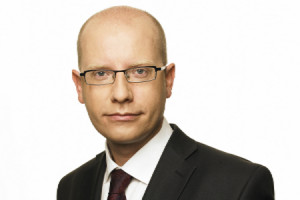
In third place was the Communists Party of Bohemia and Moravia (KSČM) with a strong showing that resulted in almost 15 percent of the vote.
The Civic Democratic Party (ODS), which has long dominated Czech politics, managed just 7.5 percent of the vote, a predictable outcome that pushes them to the fringes of Czech politics. The party’s downfall was largely due to the scandal that toppled the outgoing government.
The election result leaves the central European country of 10.5 million people facing the prospect of protracted political haggling and of another weak and unstable government just as the Czech economy emerges from a lengthy recession.
“If the lower house of parliament is fragmented, we will face tough negotiations on forming government,” said Sobotka. “The Social Democrats are prepared to take on this tough negotiation and we will try to form a reasonable, stable cabinet,” he said, adding he was ready to talk to all parties except the center-right parties who led the last government.
Election results
Social Democrats (ČSSD): 20.46%; 50 seats
Ano: 18.65%; 47 seats
Communists (KSČM): 14.91%; 33 seats
TOP 09: 11.99%; 26 seats
ODS: 7.72%; 16 seats
Dawn: 6.88%; 14 seats
Christian Democrats (KDU-ČSL): 6.77%; 14 seats
From The Prague Post and Reuters
EU enlargement: priorities for 2014. Dossier.
19 Oct 2013 In a set of annual reports adopted, the European Commission recommends granting EU candidate status to Albania and, for the fifth time in a row, the opening of accession negotiations with the former Yugoslav Republic of Macedonia. The Commission also assesses the progress towards EU accession made elsewhere in the Western Balkans and in Turkey over the past year. Given the Icelandic government’s decision to put accession negotiations on hold, a simplified report on Iceland takes stock of the current state of its alignment with the EU. 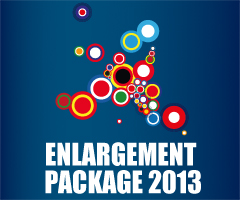
Presenting the annual Enlargement Package, Commissioner Štefan Füle said: ‘Enlargement is a process in the making and despite the economic crisis it is a good policy – it constitutes part of the solution.Enlargement continues to be one of the most effective EU policies. By addressing ‘fundamentals’ first – such as the fight against corruption, sound economic governance, freedom of expression and media, human rights and protection of minorities – it strengthens political and economic stability in the aspiring countries and the EU as a whole.”
The enlargement strategy adopted confirms the continued relevance of the fundamentals of the Copenhagen membership criteria agreed by the EU 20 years ago. These include the rule of law, which remains firmly anchored at the heart of the enlargement process. The countries concerned need to tackle issues such as judicial reform and the fight against organised crime and corruption early in the accession negotiations, to demonstrate a solid track record of sustainable results.
The global economic crisis has underlined the need for all countries to strengthen their economic governance and improve competitiveness. The Commission has set out a number of proposals to support this aim, including the introduction of national economic reform strategies and action plans for public financial management.
Recent events in a number of enlargement countries have underlined the importance of strengthening democratic institutions and making democratic processes more inclusive. All the countries in the Western Balkans and Turkey need to undertake further reforms to ensure that the principles of freedom of expression and the rights of persons belonging to minorities, including Roma are respected in practice. More robust measures are needed to protect other vulnerable groups from discrimination, in particular on grounds of sexual orientation. The Commission will increase the priority attached to these issues in the accession process, including through better targeted pre-accession funding and increased assistance to support Roma inclusion through a Roma “facility”.
Further information – European Union. Full Speech.
Today we attended the Wilton Park conference, The Eastern Partnership: moving ahead, which included participants from across the EU and from Eastern Partner countries. The Eastern Partnership, with its focus on the future prosperity of Eastern Europe, is at the top of our agendas. Today’s discussion helped shape that future direction. 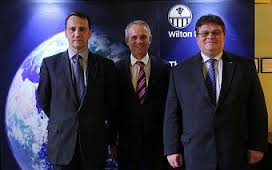
On the 28-29 November, Lithuania will host the third Eastern Partnership Summit in Vilnius. This will be an important moment for the EU and Eastern Europe. The possibility of Ukraine signing its Association Agreement, including a Deep and Comprehensive Free Trade Area, and Moldova and Georgia initialing agreements, will be important milestones towards redefining and strengthening the EU’s relationship with our Eastern European partners.
Eastern partners have already made significant irreversible and sustainable political and economic reforms, which will benefit their citizens. As they continue to grow they need to continue to implement further reforms. Liberalised economies, open and inclusive politics, and respect for the rule of law are all key building blocks for prosperity in the EU from which our eastern partners and others can benefit. We are ready to support partner countries in their efforts to implement reforms and the Association Agreements.
As we look towards the future we hope to see an Eastern Partnership that supports those seeking an ever closer relationship with the EU, and for some eventual EU membership, that supports open economic polices, inclusive democracy and that sustains respect for the rule of law, and we will do all that we can to ensure it.
Linas Linkevičius, Minister of Foreign Affairs of the Republic of Lithuania
Radosław Sikorski, Minister of Foreign Affairs of the Republic of Poland
David Lidington, Minister of State, Foreign and Commonwealth Office, United Kingdom
London – 14 October 2013
“As you know, the Kaliningrad region is isolated, geographically isolated, so we could apply some measures also to cut something,” said Linas Linkevicius, Lithuanian Foreign Minister. “Transport, we could cut off trains, but not only trains, also the supply of goods, whatever. It is theoretically possible,” the official added. 
Journalists raised the topic as Lithuania, which currently holds the rotating presidency in the EU, is preparing to host the Third Eastern Partnership Summit– the major conference dedicated to strengthening trade ties between the European economic bloc and six states in Eastern Europe and the Caucasus – Armenia, Azerbaijan, Belarus, Georgia, Moldova and Ukraine. All of these countries are Russian neighbors and close economic partners.
Russia is currently building its own economic bloc – the Customs Union – which currently consists of itself, Belarus and Kazakhstan, but to which it welcomes other neighboring nations.
Brussels is locked in an increasingly tense standoff with Moscow over its Eastern Partnership policy, which is designed to draw six countries — Ukraine, Belarus, Moldova, Georgia, Azerbaijan and Armenia — more closely into the European fold.
At the Vilnius summit on Nov. 28 to 29, the EU is expected to sign a free trade deal with Ukraine and take further steps towards free trade agreements with Moldova and Georgia. No substantial progress is expected with the other partnership states, which remain more closely aligned with the Kremlin.
«В Латвии 1 октября 2013 года вступают в силу поправки к закону о гражданстве. Они разрешают эмигрантам и их потомкам иметь одновременно два гражданства. Детей неграждан сразу признают гражданами. 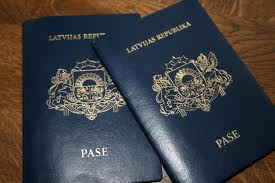
За 15 лет страну в поисках лучшей жизни покинули 200 тысяч человек. И люди продолжают уезжать. Их дети становятся гражданами других государств. А программу реэмиграции многие критикуют за оторванность от реальности. В самой Латвии еще насчитывается 300 тысяч неграждан – вдвое меньше, чем в начале независимости.
Однако темпы натурализации резко замедлились с тех пор, как неграждане получили право безвизового въезда в страны ЕС. К тому же они, в отличие от граждан Латвии, ездят без виз и в Россию. Так что поправки к закону должны решить сразу несколько задач – увеличить число граждан страны, укрепить связи с соотечественниками и, возможно, инициировать их репатриацию…
Теперь латвийское законодательство о гражданстве соответствует требованиям Организации по безопасности и сотрудничеству в Европе (ОБСЕ). В конце 2012 года верховный комиссар ОБСЕ по делам национальных меньшинств Кнут Воллебек направил спикеру латвийского сейма Солвите Аболтыне письмо с призывом предоставлять гражданство всем детям, родившимся в Латвии после 21 августа 1991 года».
Статья – Deutsche Welle.
Czech republic, elections set for late October.
22 Aug 2013“A general election is likely next month after the Chamber of Deputies voted Aug. 20 to dissolve Parliament, raising the issue of how much influence President Miloš Zeman will wield over the next government.
Lawmakers voted 140 to seven in favor of holding new polls, with the Czech Social Democratic Party (ČSSD), Public Affairs (VV), Communists (KSČM) and TOP 09, along with a number of deputies without a parliamentary party group affiliation, lining up in favor of dissolving Parliament. At least 120 deputies had to agree to dissolve parliament for the vote to succeed. 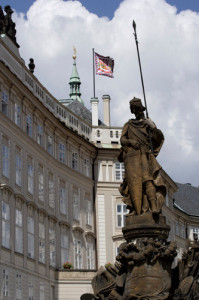
With the right-leaning Civic Democratic Party (ODS), which boycotted the vote, languishing in the polls, left-wing lawmakers are likely to be able to form a government after the election, expected on Oct. 25-26.
The Social Democrats are predicted to be the largest party in the lower chamber once the results are in, so any new prime minister will likely be drawn from their ranks.
A key question, according to political analyst Jiří Pehe, the director of New York University Prague and a former adviser to the late former President Václav Havel, is whether Zeman invites the party chairman, Bohuslav Sobotka, to be the head of government.
The selection of Sobotka could reduce Zeman’s influence over the government, since the 41-year-old party chairman is not seen as an ally of the president, who was affiliated with the Social Democrats until 2007…
The influence wielded by Zeman, who took office in March as the Czech Republic’s first directly elected president, has been a key talking point in relation to the government of Jiří Rusnok, whose Cabinet’s recent lost of a vote of confidence in the Chamber of Deputies prompted the dissolution vote.
Zeman’s decision to appoint Rusnok after the government of Petr Nečas fell over a spying and corruption scandal was highly controversial, since Rusnok is a Zeman ally who is not a member of parliament nor affiliated with one of the main parties.
The move, which also saw a string of Zeman allies appointed to the Cabinet, was seen as an attempt by the president to usurp Parliament’s power, even though the Rusnok administration was set to remain in power only for a short period, with elections having to take place next year anyway.
Rusnok resigned as prime minister after his administration lost the Aug. 7 vote of confidence, but the former banker has stayed on in a caretaker role….
Sobotka indicated that, if in power, his party would scale back austerity measures and increase government spending, something the Nečas administration had been predicted to do in any case to boost the economy ahead of what would have been a 2014 election. The Social Democrats, who last held power in 2006, would be likely to increase taxes.
The country has just recorded its first quarter of growth, from April to June, after a record six successive quarters of contraction.”
Full Article – Daniel Bardsley – The Prague Post
Welcome
We are a group of long experienced European journalists and intellectuals interested in international politics and culture. We would like to exchange our opinion on new Europe and Russia.
Categories
- Breaking News (11)
- CIS (129)
- Climate (2)
- Energy&Economy (115)
- EU Eastern Dimension (85)
- Euro 2012 – Sochi 2014 – World Cup 2018, Sport (43)
- Euro-Integration (135)
- History Culture (198)
- International Policy (261)
- Military (74)
- Interviews (18)
- Italy – Italia – Suisse (47)
- Odd Enough (10)
- Poland and Baltic States (126)
- Religion (31)
- Russia (421)
- Survey (4)
- Turning points (4)
- Ukraine (176)
- Российские страницы (113)
Archives
- November 2020
- October 2020
- September 2020
- August 2020
- July 2020
- May 2020
- April 2020
- March 2020
- January 2020
- December 2019
- November 2019
- October 2019
- September 2019
- August 2019
- July 2019
- June 2019
- May 2019
- April 2019
- March 2019
- February 2019
- December 2018
- November 2018
- October 2018
- September 2018
- August 2018
- July 2018
- June 2018
- May 2018
- April 2018
- March 2018
- February 2018
- January 2018
- December 2017
- November 2017
- October 2017
- September 2017
- August 2017
- July 2017
- May 2017
- March 2017
- January 2017
- December 2016
- November 2016
- October 2016
- September 2016
- July 2016
- June 2016
- May 2016
- April 2016
- February 2016
- January 2016
- November 2015
- October 2015
- September 2015
- June 2015
- April 2015
- March 2015
- February 2015
- January 2015
- December 2014
- November 2014
- October 2014
- September 2014
- August 2014
- July 2014
- June 2014
- May 2014
- April 2014
- March 2014
- February 2014
- January 2014
- December 2013
- November 2013
- October 2013
- September 2013
- August 2013
- July 2013
- June 2013
- May 2013
- April 2013
- March 2013
- February 2013
- January 2013
- December 2012
- November 2012
- October 2012
- September 2012
- August 2012
- July 2012
- June 2012
- May 2012
- April 2012
- March 2012
- February 2012
- January 2012
- December 2011
- November 2011
- October 2011
- September 2011
- August 2011
- July 2011
- June 2011
- May 2011
- April 2011
- March 2011
- February 2011
- January 2011
- December 2010
- November 2010
- October 2010
- September 2010
- August 2010
- July 2010
- June 2010
- May 2010
- April 2010
- March 2010
- February 2010
- January 2010
- December 2009
- November 2009
- October 2009
- September 2009
- August 2009
Our books




